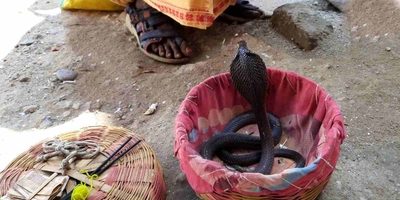
Addressing the burden of snakebite in India: A policy and systems analyses
Snakebite is a neglected tropical disease, affecting 2.7 million people developing clinical illness after snakebite (envenoming) and leading to 125,000 deaths annually. However, there is a broad consensus, that these numbers are underestimates, as many victims do not attend health facilities. Apart from deaths, snakebite envenomation also causes long-term health effects, and have a high social and economic impact in affected rural communities.
Recognising the public health impact of snakebite on vulnerable communities the World Health Organisation (WHO) has in 2017 added snakebite to the list of neglected tropical diseases, the only non-communicable disease to be so.
About 46,000 deaths from snakebite, occur in India every annually. However, the actions taken are not commensurate to the burden and impact of the disease. The project seeks to examine policies and systems responses to address the burden of snakebite in India. We intend for our findings to contribute to growing efforts in India and globally to address this critical, but largely neglected, public health challenge.
Study Sites:
Odisha and West Bengal
Our external collaborators:
- Dr Sanghamitra Pati, Director, Regional Medical Research Centre, Indian Council of Medical Research(RMRC-ICMR), Department of Health Research, Government of India, India
- Dr Dayal Bandhu Majumdar, State Level Resource Person for Snakebite Training, Institute of Health & Family Welfare, Government of West Bengal, India & Senior Medical Officer, Calcutta National Medical College, Kolkata, India
- Dr Veena M. Sriram, AHRQ National Research Services Award Postdoctoral Fellow, Centre for Health and the Social Sciences, University of Chicago, USA
Our external publications:
Interventions for the management of snakebite envenoming: An overview of systematic reviews (PDF 1.32 MB)











